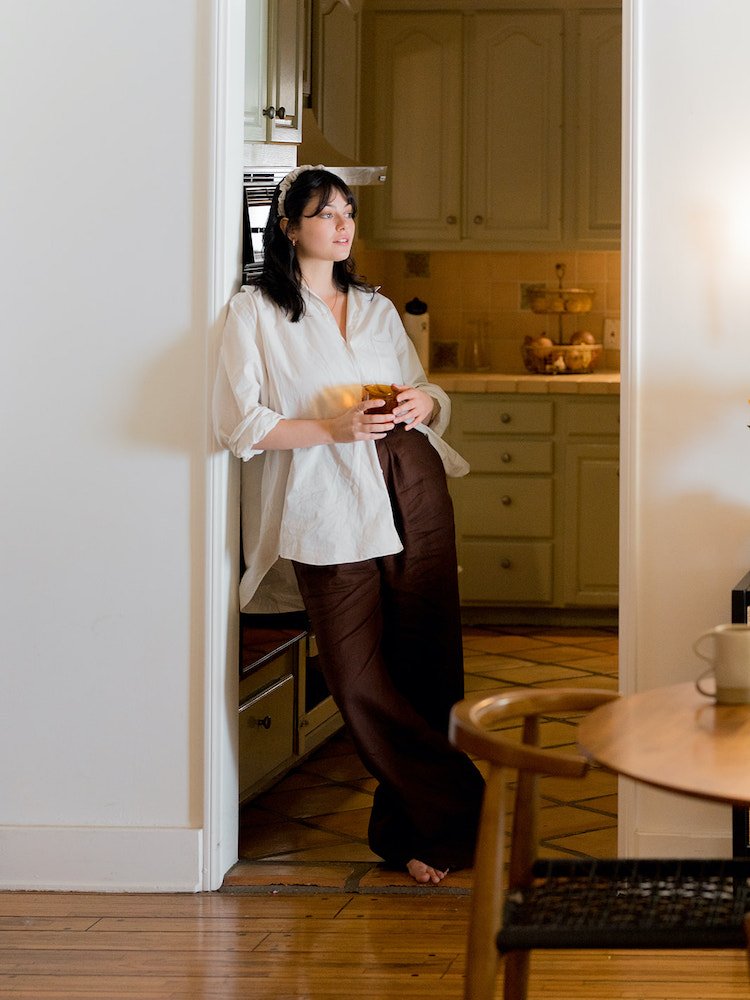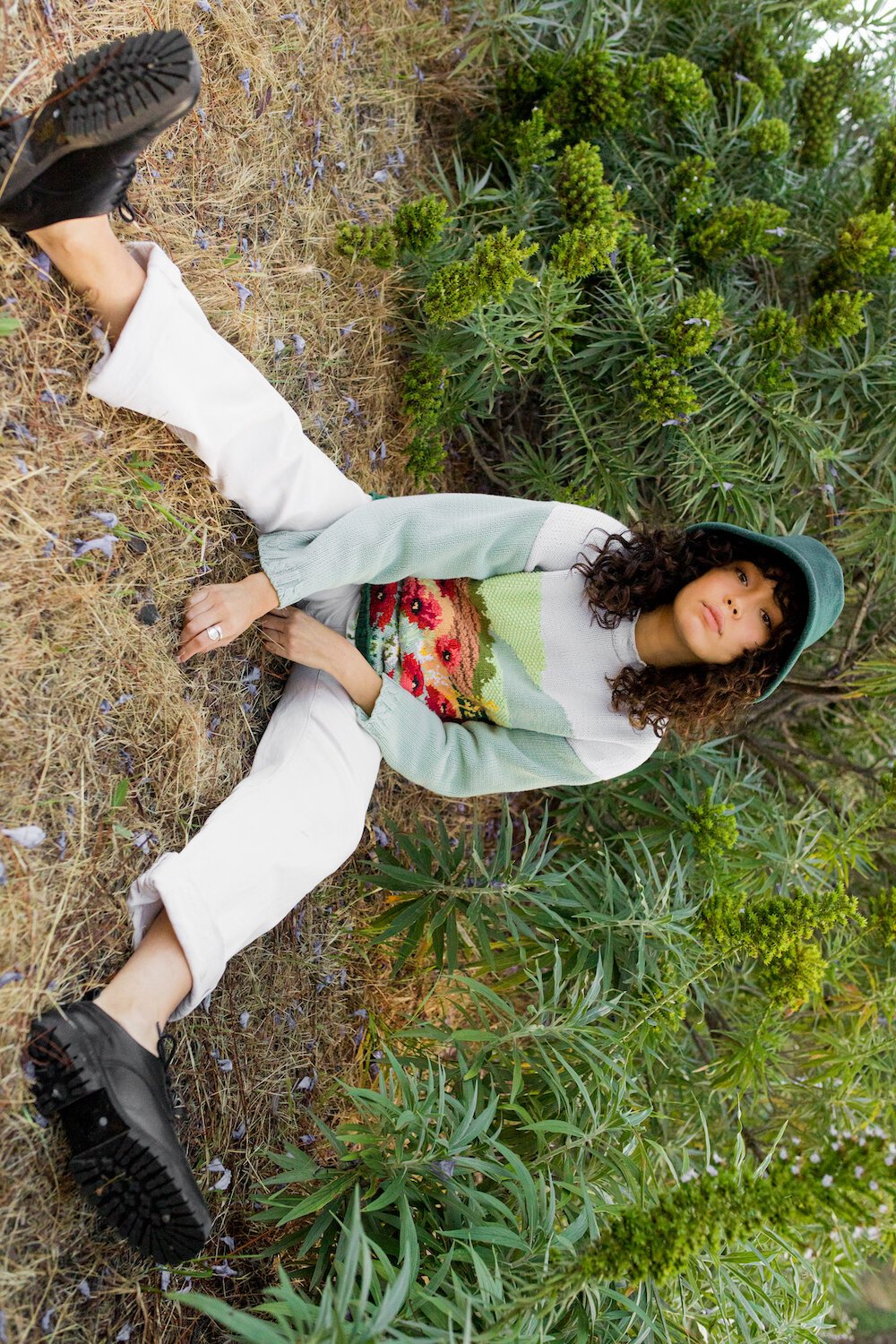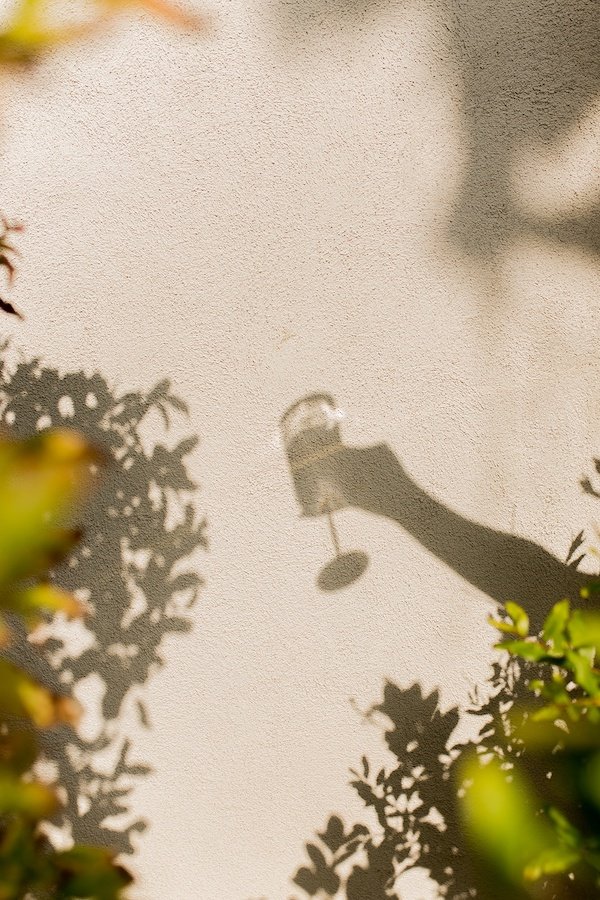
Why I’m Swapping “Big Dreams” For Small Satisfactions
This past spring, I went to a prominent book festival on a college campus in my city. For an entire afternoon, I wandered around the event in a trance, listening to panels with some of my favorite authors; buying too many books to carry and waiting in lines to have them all signed; drinking iced coffee in the sunshine while taking in the creative energy.
While browsing books in the maze of white tents later that afternoon, I was struck by how many small writers and artists were present. So many names I didn’t know, so many book titles I’d never heard of. There was a tent for an LA-based comic magazine publishing radical justice-oriented poetry; a woman dressed in all linen promising an impromptu story in exchange for buying her book. One man sat in the shade of his tent next to a big cardboard sign that read, “Are you my agent? I’ve been looking for you.”
For weeks after the event, these unknown writers and artists stayed with me, perhaps because they were—they are—creators, just like me, and have likely spent decades fueled by big dreams of “making it.” I can’t help but wonder if they too ride the line of hope and fear when it comes to their art, to their fragile dreams that feel as if they could take off or plumet at any given time. Do they also wonder whether their writing will ever see the light of day, or better yet, help them build a satisfying career?
“To reach one’s dreams and realize one’s full potential—well, that was the dream. All I had to do was work for it.”
I’ve always had big dreams—and not just about writing books, either. Growing up, my parents told me I could be anything or anyone I wanted to be, and I never doubted those words. “She could be the first woman president!” my first-grade teacher, Mrs. Brown, exclaimed at back-to-school night when I was only six. My parents beamed with pride, and I drank up their energy.
As many millennials will understand, I knew I needed to make something of myself from a very young age. It was standard to have a five-, 10-, and 20-year plan to recite for inquiring adults throughout my adolescence. The pressure was enormous—from the outside world but also when I looked at myself in the mirror. The narrative that my worth was contingent on achieving my dreams ultimately made its way inside me, conditioning my malleable mind to think about life solely as a goal-oriented mission. To reach one’s dreams and realize one’s full potential—well, that was the dream. All I had to do was work for it.
There are benefits to this dream-centered ethos. For one, you get an entire generation of visionaries and overachievers. Dreaming big can be a force of motivation and inspiration; when the sky is endless for some, others can begin to believe the sky is endless for them too—though, of course, that has limits depending on your privilege. Research also suggests that believing in yourself means you’re more likely to achieve what you set out to accomplish. In a way, dreaming is an important component to manifesting your desires.
“I sometimes wonder if ‘big dreams’ have become the sole focus for many of us, the barometer for which we measure our satisfaction and even our worth.”
Yet, I sometimes wonder if “big dreams” have become the sole focus for many of us, the barometer for which we measure our satisfaction and even our worth. It’s easy to convince ourselves that we haven’t “arrived” yet, that we won’t arrive until our wildest dreams come true (whatever that means). I fear it’s even easier to believe that our lives are and will possibly always be unfulfilled—that we are unfulfilled—until that magical moment happens.
Dreams change over time. What I once wished for as an eager girl and bright-eyed graduate may not be what’s best for me now. Or maybe it still is but it’s taking many years to get there. Sometimes we need to mourn the loss of a dream, especially one that has defined so much of our life before we’re able to move forward and dream again.
As I get older too, and many of my dreams are actualized, I’ve discovered they don’t offer as much satisfaction as I would have hoped. I once dreamt of living abroad and seeing more of the world, and so I went to school in London. In my 20s, I dreamed of having an essay published in a literary magazine, and then it happened. While I am grateful and proud of these milestones, they were there and then they were gone. They didn’t define my life like I thought they would, and they haven’t been the moments I return to when searching for inner peace.
Instead, it’s the small moments of satisfaction that have shaped me: the morning walks with my dog, the warmth of coffee on my lips, the sun filtering through the trees and showering light on the late spring blooms.
It’s the voice texts and group chats and feeling close to a faraway friend, the silly jokes at the dinner table, the phone calls to a relative, just to say hello. It’s the clocking in and clocking out of the workday, feeling grateful for a job, even if it isn’t my dream.
The mundane moments matter too—they offer, perhaps, the deepest satisfaction. I feel it when I’m standing at the kitchen sink, gripping a sponge and scrubbing dried marinara off a cheap Ikea plate. I realize: I am living. A profound gratefulness and satisfaction sink in. My big dreams may still be far away, but I have survived harsh seasons, the lasting lulls. More importantly, I am here, and that is enough.
When we’re always striving for something more, we run the risk of no longer seeing what is right in front of us, and our dreams can become a replacement for peace and presence. Without accolades or to-do lists or tiny goals, we can also feel unsure of where to focus our attention, and thus miss out on the lives we’re living right now, in this moment.
The concept of dreaming big can be a gift, as long as we don’t allow our dreams to become distractions, keeping us from experiencing the small joys that already mark our days. “Big dreams” can be much smaller than we ever imagined if we allow for it—to live intentionally, to be surrounded by people and small satisfactions—that too is a realized dream. Best of all, these dreams don’t have deadlines, and they’ll never expire or disappear after we’ve fulfilled them.
“We can have both: big dreams and intentional living. Isn’t that the beauty of it all? We don’t have to choose.”
It’s okay to seek out what we already have and appreciate it. And it’s also okay to dream. We can have both: big dreams and intentional living. Isn’t that the beauty of it all? We don’t have to choose. We can dream within the parameters of the present moment, and our success does not have to hinge on whether or not these dreams are ever realized.
Do I still want to reach for the stars? Yes. But I’m also reaching for this small and unassuming moment, the one right here, right in front of me.
Kayti Christian (she/her) is the Managing Editor at The Good Trade. She has a Master’s in Nonfiction Writing from the University of London and is the creator of Feelings Not Aside, a newsletter for sensitive people.




